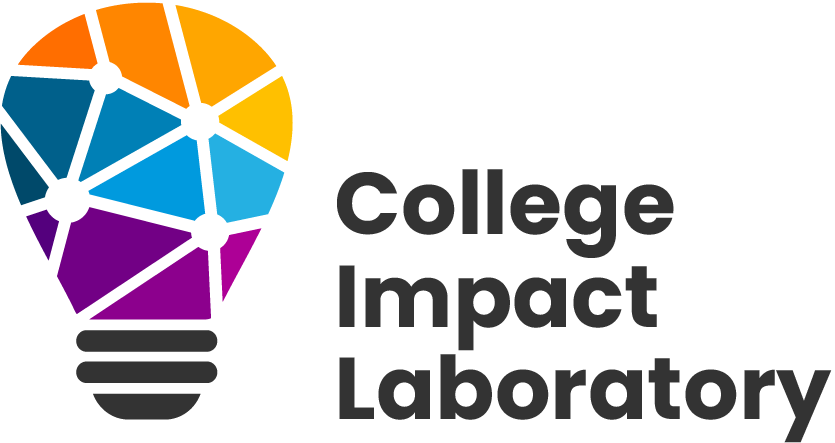
EDiCTS 1.0
Enhancing Diversity in Career and Technical STEM
The Enhancing Diversity in Career and Technical STEM (EDiCTS) project is a multi-year study that seeks to enhance diverse student representation in the automotive technical fields by increasing their recruitment, retention, graduation, and workforce entry via the development of extra-curricular elements, institutional financial support, and iterated program evaluation and training. EDiCTS is a partnership project between researchers in The Ohio State’s College Impact Laboratory (CoIL), The Ford Motor Company, the ECMC Foundation, and select community colleges that offer the Automotive Student Service Educational Training (ASSET) program.
Ford ASSET
The Ford ASSET programs are cooperative two-year associate degree programs that allow students to earn a college degree, gain about a year of work experience, and earn 19 Ford certifications. Students are required to work at a sponsoring Ford or Lincoln dealership during their degree program, which allows students to engage in the theory-to-practice element. This experience-referred to as their co-op or internship-is a critical element that allows the students to apply what they learn in the classroom in the real-world setting, become familiar with the dealership/workplace environment, and earn money while they pursue their degree.
EDiCTS Activities
ASSET students will engage in various activities designed to enhance student goal orientation, social and academic integration, interaction with faculty, and resilience to external pressures that promote attrition.
Surveys. ASSET students will complete a fall/winter survey and a survey at the end of the spring semester. When they graduate, they will complete a two-month post-graduation survey and a one-year post-graduation survey.
Goal-Setting. ASSET students to engage in an extended writing task that will define a set of academic, work, and social goals, and to subsequently have a meeting with their academic advisor every semester when they will receive information on how to navigate the community college environment and utilize available opportunities and supports to reach these goals. Doing so is predicted to enhance student goal commitment (Halpin, 1990) and to allow students to benefit from more intensive academic advisement (Hatch & Garcia, 2017).
Learning-Self Assessment. ASSET students to perform a written self-assessment of their weaknesses and strengths in relation to the ASSET program. Also, students will meet with a faculty member or an internship mentor to discuss how the ASSET program can be improved to better support their success. This element has been documented to enhance community college success (Mertes, 2015).
Evaluation Interview and Self-Reflection. Select ASSET students to engage with an evaluation team member and complete at least one hour of interviews regarding their collegiate experiences each academic year. Interviews like these enhanced self-regulation, goal orientation, and retention in community college students (Mahlberg, 2015).
Evaluative Cohort Gathering. This gathering will allow students to discuss and provide opportunities for students to develop peer support networks and identify interpersonal resources and coping strategies that will promote persistence. Such peer interaction has been demonstrated to enhance learning and GPA in community college populations (Lundberg, 2014), thus indirectly promoting retention.
Social Event. This experience is designed to help students develop relationships with their peers at different points in the ASSET program, and network with college faculty and internship mentors. Supports like these have been documented for their efficacy in helping community college students succeed (see Mertes, 2015).
Financial Incentives. ASSET students can earn up to $350 per year for participation in these activities: $25 for the fall/winter survey; $25 for the end of the spring survey; $200 engagement fund; $100 to offset the price of consumable instructional materials.
Presentations and Papers
Presentations
Creamer, E. T., Townsend, S., Mayhew, M., &Weng, Y. Rev Up Your Engines: Fueling Motivation, Retention, and Graduation Among Auto Tech Community College Students. Presented at the Council for the Study of Community Colleges (CSCC) Annual Conference, April 18-20, 2024.
Mayhew, M., Creamer, E. T., Townsend, S., & Weng, Y. Profiling Exemplary Automotive Technology Programs: Best Practices for Community College Student Success. Presenting at the American Educational Research Association (AERA), April 11-14, 2024.
Mayhew, M., Creamer, E. T., Townsend, S., & Weng, Y. Profiling Exemplary Automotive Technology Programs: Best Practices for Community College Student Success. Presenting at the 2024 NASPA Annual Conference, Seattle, WA, March 9-14, 2024.
Mayhew, M., Creamer, E. T., Townsend, S., & Weng, Y. Profiling Exemplary Automotive Technology Programs: Best Practices for Community College Student Success. Presenting at the 2024 Community Colleges Institute, Seattle, WA, March 9-14, 2024.
Townsend, S., Creamer, E. T., & Mayhew, M. Women’s Voices in College Career and Technical Education: Themes from a Phenomenological Study of Students in Automotive Technician Training Programs. 2024 Ohio State University College of Education and Human Ecology (EHE) Research Forum, February 22, 2024.
Townsend, S., & Creamer, E. T. What Keeps Students Striving for Success? Self-Determination Drives Aspirations of Students in Community College Automotive Technician Training Programs. 2024 Ohio State University College of Education and Human Ecology (EHE) Research Forum, February 22, 2024.
Creamer, E. T., Mayhew, M., & Townsend, S. Knowing your assets: navigating best practices through an exemplary case study focused on an automotive technology associate degree programs. Presented at the Association for Career and Technical Education Research conference, Phoenix, AZ, November 27-29, 2023.
Creamer, E. T., Townsend, S., Weng, Y., & Mayhew, M. Know your assets: Advising and EDiCTS (Enhancing Diversity in Career and Technical STEM). 2023 NACADA Region 5 Conference, Windsor, Ontario, April 26-28, 2023.
Townsend, S. & Creamer, E. T. Evaluating student retention in community college autotech programs. 2023 Ohio Association for Institutional Research and Planning Spring Conference, Columbus, OH., April 21, 2023.
Creamer, E. T., Townsend, S., Weng, Y., & Mayhew, M. Know your assets: Enhancing Diversity in Career and Technical STEM. (Selected but cannot attend) 2023 American Association of Community Colleges Conference, Denver, CO., April 1-4, 2023.
Creamer, E. T., Weng, Y., Townsend, S., & Mayhew, M. Know your assets: Advising and EDiCTS (Enhancing Diversity in Career and Technical STEM). NACADA Region 7 Conference, Oklahoma City, February 27-March 1, 2023.
Creamer, E. T. Know your assets: EDiCTS (Enhancing Diversity in Career and Technical STEM). 2023 Ohio State University College of Education and Human Ecology (EHE) Research Forum, February 16, 2023.
Print Pieces
Mayhew, M., Creamer, E. T., & Townsend, S. (2024, February 13). Making college affordable: Letting corporations pay for students to go to college. Forbes. https://www.forbes.com/sites/matthewmayhew/2024/02/13/college-affordable-letting-industry-pay-for-students-to-go-to-college/?sh=75e947e27e82
Mayhew, M., Creamer, E. T., & Townsend, S. (2023, March 20). Abandoning the college minor for certification: Partnerships, placement, and potential. Inside Higher Ed. https://www.insidehighered.com/views/2023/03/21/it-may-be-time-rethink-college-minor-opinion
Reports
Creamer, E. T., Townsend, S., & Mayhew, M. (2023). Self-assessment and goal-setting among ASSET students. College Impact Laboratory, The Ohio State University.
Creamer, E. T., Townsend, S., Mayhew, M., & Dahl, L. S. (2023). Enhancing Diversity in Career & Technical STEM: 2023 annual report. College Impact Laboratory, The Ohio State University.



